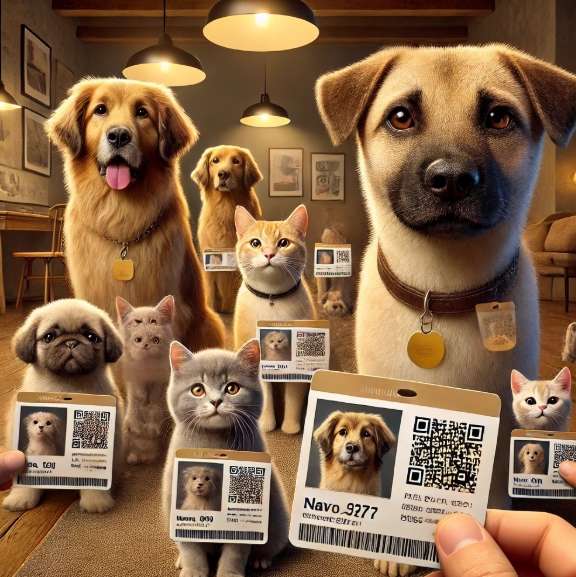Brazil Implements QR Code Pet Passports
Brazil is embarking on a groundbreaking initiative to enhance animal welfare and responsible pet ownership through the implementation of a nationwide pet identification system. The National Register of Domestic Animals, currently undergoing final testing, will provide free Animal ID cards for household pets, marking a significant step towards improved animal care and control. This innovative approach leverages technology and centralized data management to address critical issues such as animal abandonment, mistreatment, and disease control. By requiring pet owners to register their animals, the system aims to foster a sense of accountability and facilitate the reunification of lost pets with their owners.
The Animal ID cards will contain a wealth of information vital for animal identification and welfare. This includes details about the pet owner, such as their name and contact information, as well as comprehensive information about the animal itself. Pet owners will be required to provide details such as breed, age, vaccination records, and overall health status. The system will also track changes in pet ownership, such as sales, donations, or deaths, ensuring a comprehensive record of the animal’s life. Furthermore, the inclusion of a unique QR code on the ID card, printable and attachable to the pet’s collar, allows for easy access to this information using a smartphone camera. This feature will be invaluable in cases of lost or abandoned animals, enabling quick identification and reunification with their owners or appropriate authorities.
The implementation of the National Register of Domestic Animals goes beyond mere identification and serves as a powerful tool for public policy development and implementation. By gathering comprehensive data on the pet population, the government will be able to better understand the needs of animals and develop targeted interventions. This information will be crucial in planning and implementing effective neutering campaigns, combating animal mistreatment, and promoting responsible pet ownership. Furthermore, the registry will provide valuable data for local governments, enabling them to tailor their animal welfare programs to the specific needs of their communities. This data-driven approach will empower local authorities to optimize vaccination campaigns, castration programs, and adoption initiatives, resulting in improved animal welfare outcomes at the local level.
A key aspect of the National Register of Domestic Animals is its emphasis on data security and privacy. The system is designed to protect the personal information of pet owners while ensuring that relevant data is accessible to authorized individuals and organizations. This balance between data accessibility and privacy is crucial for building trust and encouraging widespread participation in the program. The law establishing the system explicitly prohibits the use of the registry for imposing pet taxes, reinforcing the government’s commitment to promoting responsible pet ownership without imposing undue financial burdens on pet owners. This focus on ethical population management and public policy support underscores the government’s dedication to improving animal welfare through a comprehensive and compassionate approach.
The National Register of Domestic Animals represents a significant advancement in Brazil’s efforts to promote animal well-being and responsible pet ownership. By leveraging technology and centralized data management, the system provides a powerful tool for addressing critical animal welfare challenges. The free Animal ID cards not only facilitate the identification and reunification of lost pets but also empower authorities to develop targeted interventions that address issues such as abandonment, mistreatment, and disease control. The system’s emphasis on data security and privacy ensures responsible data handling, while the prohibition of pet taxes reinforces the government’s commitment to promoting ethical population management. This comprehensive approach demonstrates Brazil’s dedication to creating a more humane and compassionate environment for animals.
The initiative’s success will hinge on widespread adoption and effective implementation across the country. Collaboration between government agencies, veterinary professionals, animal welfare organizations, and the public will be essential to ensure the accurate and comprehensive registration of pets. Public awareness campaigns will play a crucial role in educating pet owners about the benefits of the program and encouraging them to register their animals. The government’s commitment to providing free ID cards removes a potential financial barrier to participation, making the program accessible to all pet owners regardless of their economic status. The ongoing testing phase will allow for fine-tuning of the system and addressing any potential challenges before its full implementation. By working together, Brazil can ensure that this innovative initiative achieves its goal of improving animal welfare and promoting responsible pet ownership nationwide.
Share this content:








Post Comment